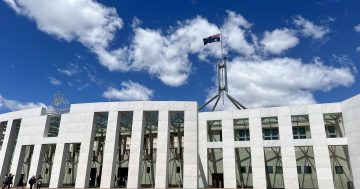
The ACT rates highly for financial consciousness but many still find it hard to make ends meet.
The ACT, with its high incomes and low unemployment, may be at the top of the rung in a new study on Australians’ ‘financial consciousness’ but one in four remain classed as financially vulnerable.
The study, from Comparethemarket.com.au, said ACT residents gained Australia’s highest average mark, despite only scoring 52.5 out of 100.
But 23 per cent of ACT residents were found to be financially vulnerable, or nearly 76,000 people across the ACT who feel little job security, regularly struggle to pay household bills and are unable to put savings aside.
Comparethemarket.com.au General Manager of Banking, Rod Attrill said ACT residents, who enjoyed the country’s highest average income and an unemployment rate well below the national average – 3.9 per cent versus 5.3 per cent – were more attuned to their finances than the rest of the nation.
“However, when in context, results are still relatively poor, indicating a widespread lack of confidence in people’s own belief and ability to improve their future financial situation,” he said.
Thirty-eight per cent said they either worry about or feel very little job security, 26 per cent were less confident in their ability to retire comfortably at 65 compared to last year and more than half (51 per cent) of ACT residents said they had struggled to pay their household bills at some point.
The Financial Consciousness Index (FCI), which was commissioned by comparethemarket.com.au and developed by Deloitte Access Economics, tested 3000 individuals nationally to uncover their ability, willingness and sophistication to make a change to improve their financial wellbeing.
Results were weighted for a score out of 100, placing them into one of five groupings associated with different levels of financial consciousness. Scoring less than 35 placed respondents in the lowest category: ‘Don’t know what they don’t know’, whereas scoring between 35 and 45 saw them in ‘It’s a blur’.
The average Aussie is deemed ‘Conscious’ by scoring between 45 and 55. Those ‘Rising up the ranks’ scored between 55 and 70, and the ‘Financially Enlightened’ scored over 70 points.
“Determining a person’s ‘financial consciousness’ can help form decision makers’ views on how to tackle much broader public policy problems. If people do not feel empowered or able to improve their financial situation, then this has obvious effects on the economic health of the ACT as a whole,” Mr Attril said.
Major contributing factors that affected a person’s FCI score include their age, income, gender, location, education, and whether or not they own their own home.
On average, ACT women scored 50, whereas men scored 54.7, reflecting a range of inherent social factors such as women being less likely to be in full-time work, and therefore more likely to have lower superannuation balances.
Across the country, South Australia and Tasmania were in joint last place on the Financial Consciousness scale, scoring an average of 49.9 each. NSW rated higher than Victoria, scoring 52.4 versus 50.4.
Mr Attril said there was a clear relationship between people’s FCI score and their overall financial wellbeing and sentiment.
“By commissioning this report, we hope to capture the attention of a range of stakeholders, including consumers, businesses, and public policy makers. Undoubtedly, we feel it demonstrates that many ACT residents need greater education, empowerment and understanding to enable them to take tighter control of their everyday finances,” he said.
The study found overall that average Australians score 51.2 out of 100, putting them right in the middle of the Index, with 27 per cent of Australians meeting the threshold of basic financial consciousness (FCI score between 45-55), and only 9 per cent enlightened enough to be at the peak of financial consciousness (FCI score over 70).
Less than half (40 per cent) of Australians met the basic threshold for financial literacy and capability. And 41 per cent with a mortgage don’t check interest rate changes because they either have no interest, don’t know what the RBA cash rate is, or do not see its relevance to them. And of those with a mortgage, 68 per cent said they had not stress-tested their home loan.
In the wake of the Financial Services Royal Commission, trust has taken a hit with 45 per cent of Australians saying they do not trust insurance companies or retail banks, a significantly higher figure compared to other financial institutions.





















